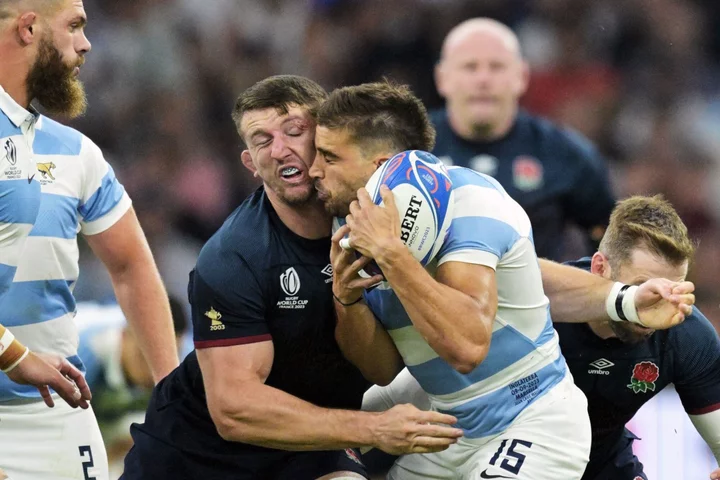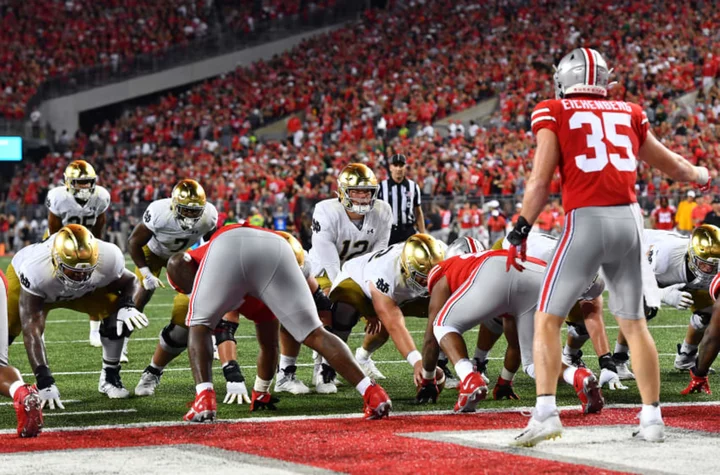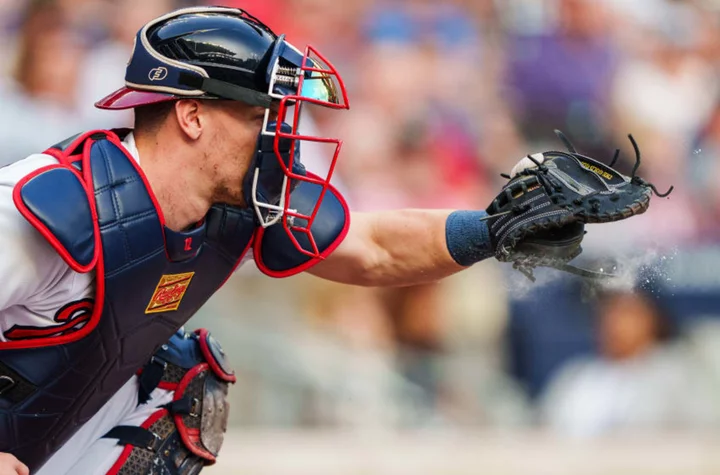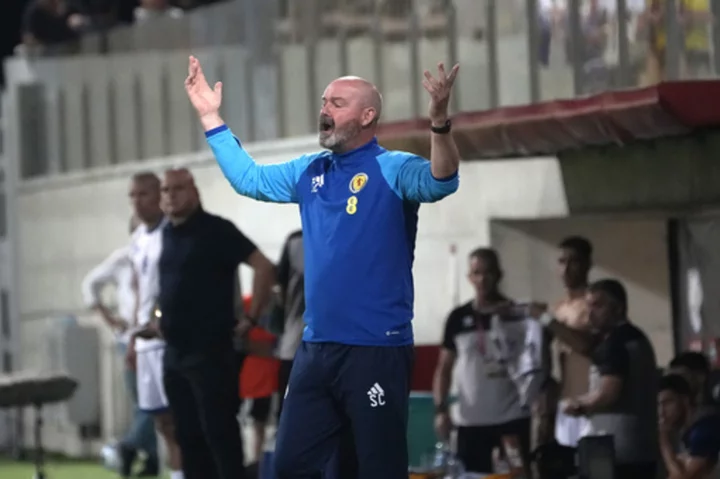The Rugby World Cup in France is set to be the most-watched iteration of the quadrennial competition ever, the pinnacle for a sport that has attracted hundreds of millions of dollars of sponsorship, broadcast revenue and even investment from big private equity firms.
Yet the fanfare masks a game mired in an existential crisis that’s raising the possibility that this may be the last major tournament characterized by 280-pound (125-kilogram) men smashing each other into the turf.
Although barely into its second week, the World Cup has been beset with head injuries. After just three minutes of England’s first game, Tom Curry was sent off following a collision with Argentina full-back Juan Cruz Mallia. A number of other incidents saw players clash heads, with referees sin-binning some players.
Much of the fear over the future of the sport stems from the risk of damage from blows to the head. Many of the key talking points from the first World Cup weekend revolved around head injuries and whether a player’s actions are dangerous and need to be punished.
Of particular concern are the links between playing the sport and chronic traumatic encephalopathy, or CTE, initially referred to as punch drunk syndrome and named for the boxers who often suffered from it.
QuicktakeWhy Collision and Concussion Are Sports’ Twin Dangers
Studies show there are hundreds of former NFL players in the US whose brains show signs of CTE, with a number of suicides among former athletes. Unlike NFL, rugby players are not protected by pads or helmets, but in theory have stricter rules on how to tackle correctly.
In 2020, a group of ex-professional rugby players sued some of the game’s governing bodies, seeking compensation for neurological injuries including early-onset dementia. That’s challenged the image of the sport among fans and players and raises the possibility of the English and Welsh rugby unions being forced to pay out to its former stars.
“We believe that as many as one in two elite-level players could end up with some level of neurological impairment,” said Richard Boardman, a lawyer at Rylands Garth, which is leading the suit on behalf of hundreds of former players. “Gladiators in ancient Rome wouldn’t have signed up.”
Finding a solution to concerns over the dangers to the neurological health of its players will be crucial to rugby thriving— or even surviving. In the UK participation has plummeted, and top-level clubs have failed through financial mismanagement. Fewer players are also taking up the game at school.
While the England rugby team prepared to face Argentina in Marseille, back across the English Channel the East London Rugby Club were adjusting to the new rules introduced by England’s rugby authorities aimed at limiting the number of head injuries.
A key part of rugby is the tackle, and the new laws aim to reduce head contact by forcing players to crouch lower and make contact below the sternum. East London Rugby club volunteered to have a number of its players’ brains scanned in a trial to see if new technology could better monitor brains for signs of concussion and injury. Results are pending.
Even with all that, not everyone is convinced the risks of head injury will decline. “The head will just contact somewhere else, it will be the tackler’s head hitting the knee or hitting the hip,” East London Rugby Club Chairman Simon Crick said at the team’s clubhouse bar. It’s just not possible to totally remove the risk of hitting one’s head in a game like rugby, he said.
Rugby is named after an English boarding school where, according to popular myth, an errant pupil picked up the ball during a football game and ran with it. With an oval-shaped ball and full-contact tackles, it bears a lot of similarities to American football. But when it comes to concussion, research suggests that rugby players may be at even greater risk than American football players.
The NFL reached a $765 million settlement with thousands of former players, who had accused the league of negligence and of failing to warn of the long-term risks of head injury. The legal action in rugby involves amateur and professional players that are exhibiting symptoms consistent with CTE or other neurological problems, with the suits targeting English, Welsh and global governing bodies for the sport.
The body of research around the prevalence of CTE and other neurological problems in rugby is meager but growing. In 2021, a study assessed the brain matter of 44 elite players, finding that nearly a quarter of them exhibited abnormalities in the structure of their brains.
Steve Thompson, one of the players involved in the Rylands Garth lawsuit, told the Guardian newspaper in 2020 that he had little recollection of winning the World Cup 17 years earlier. He was just 42 years old at the time of the interview.
“There is not going to be one piece of research that comes out that absolutely nails this link between repetitive head injuries and long-term damage because there are so many factors,” Bill Ribbans, a professor of sports medicine and part of Progressive Rugby, a player welfare lobby. “But the research now is so strong that there is this link and I suppose that we feel that you should err on the side of caution.”
At East London Rugby Club, the new rules are leading players to go lower when trying to wrestle opponents to the ground. On the whole, the players didn’t seem too disrupted by the changes, and while many have had concussions none say the concerns would turn them away from the sport.
In the match itself, a friendly game played with little animosity, there are few illegal tackles. One opposition player is taken off for a head injury assessment after taking a knock, but otherwise it’s sore legs and arms rather than heads. The worst injury is suffered by Erik Filippa, an Italian winger with a swollen foot.
“I get that people are worried about it we have all had head injuries, I have had head injuries,” Crick, who kept playing rugby into his sixties. “Who knows what is in the future but I wouldn’t have stopped playing and doing what I did.”









